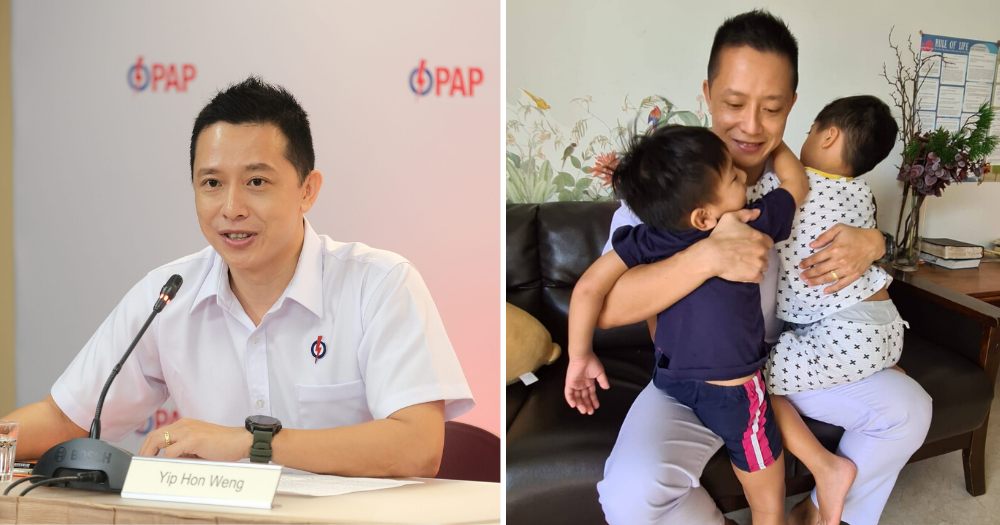The People's Action Party (PAP) introduced a total of 27 new candidates for the upcoming General Election.
While the wide slate of fresh faces are likely to befuddle the majority of Singaporeans, you might remember one of the new candidates, Yip Hon Weng, as the man who very proudly proclaimed that he is a father of five.
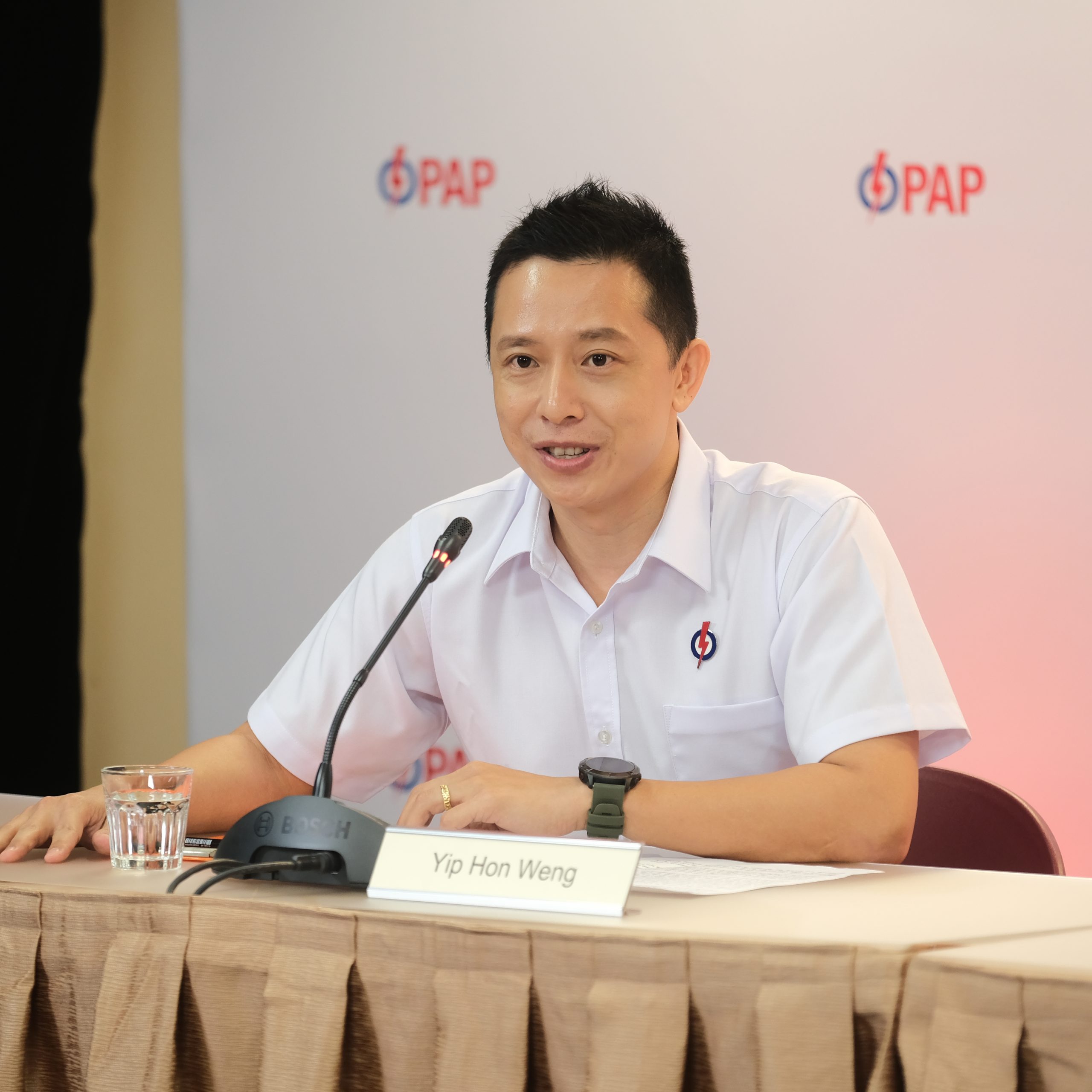 via PAP.
via PAP.
During his introduction speech at a PAP press conference, Yip said that he chose to have a big family not only because he and his wife love children, but also because of his faith in Singapore's future.
Clearly, Yip is taking the government's spiel of raising the country's Total Fertility Rate to heart.
While Yip has a relatively big family unit, the party obviously isn't going easy on him for the 2020 General Election (GE2020).
Yip has been fielded in Yio Chu Kang Single Member Constituency (SMC), facing off Progress Singapore Party's (PSP) Kayla Low.
Held positions in MOE, Mindef, MOH & Silver Generation Office
The 43-year-old boasts an extensive list of accolades and achievements, having done stints in several ministries.
He first started his career as a Physical Education and Mathematics teacher at Kent Ridge Secondary School, after attaining his Bachelor's degree in Physical Education, Sports Science and Mathematics.
Yip pointed out that he had specifically requested for a typical and new secondary school so that he could have some "influence in shaping [its education] processes and systems".
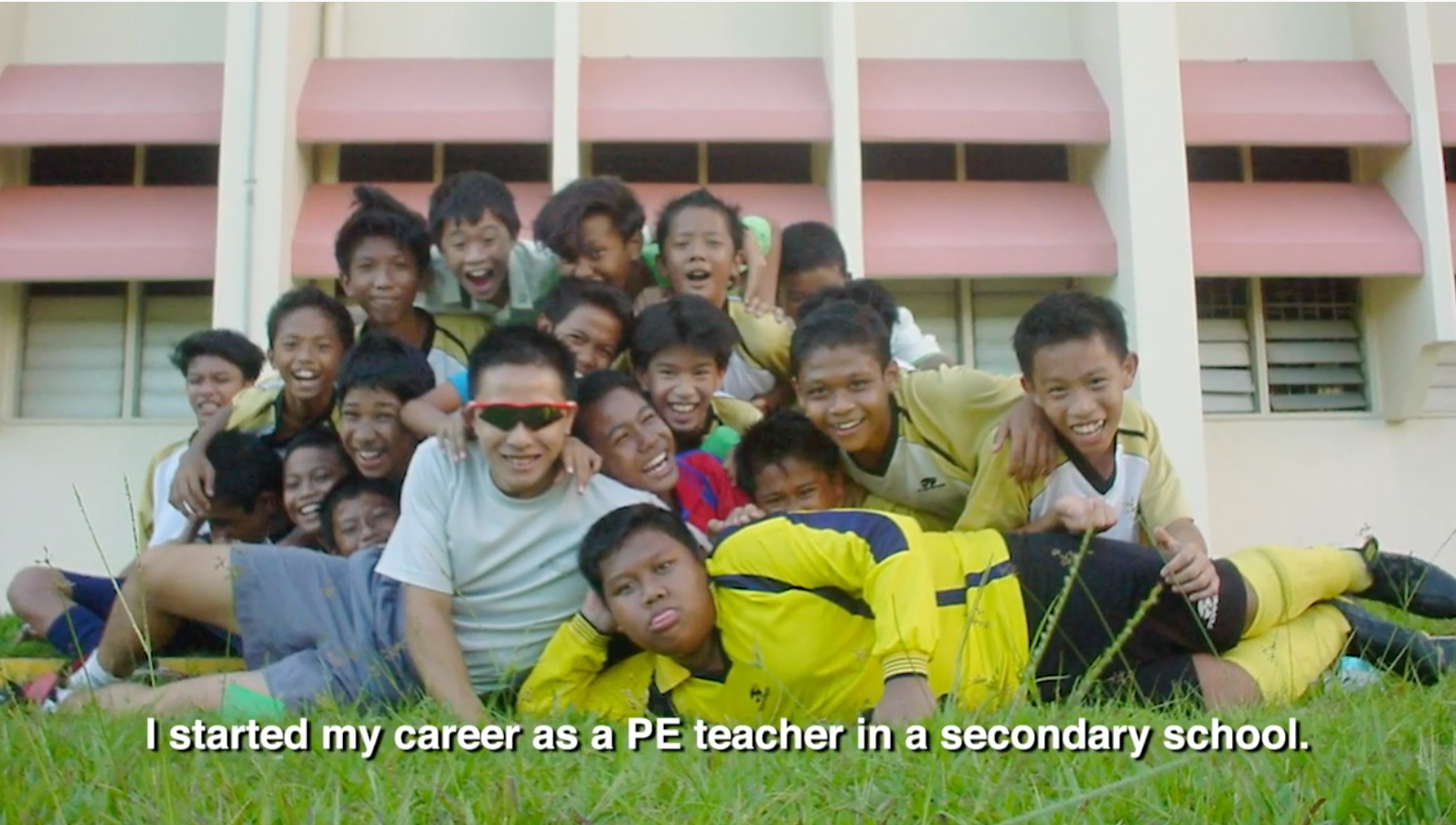 via PAP video screengrab.
via PAP video screengrab.
After two years of teaching, Yip then went on to hold various policy-related positions in the Ministry of Education, Defence and then Health.
Yip then took a break from work to read his Master's degrees -- four to be exact, in education, financial engineering, knowledge engineering and business administration from Harvard University, NUS, NTU, and Massachusetts Institute of Technology respectively.
On his return, he was reassigned to help set up the Municipal Services Office which came suddenly to him.
"It was very odd because I kept asking where I'm going to, they didn't tell me. Then I was like, simi si (what is this) Municipal Services Office, and they said they just decided, PM Lee is going to announce it during the National Day Rally, and they told me, "You're going to set it up'," he said.
"Of course, not alone," he quipped.
Under the MSO, Yip and his team helped build the OneService app that most Singaporeans know as the all-in-one app where you can send complaints.
People of a certain vintage will remember the classic fishball stick event, which supposedly led to the creation of this app.
"This way, you wrap services around the individual or resident, rather than ask individuals to search for these services themselves," Yip described how this app helps to improve the responsiveness of government agencies.
Yip then moved on to become Group Chief of the Silver Generation Office (SGO), a move which he said he was initially hesitant about, but had no regrets later on.
It was during this period where Yip traversed the ground the most to communicate with seniors, doing his part to resolve issues like loneliness, dementia, and overall, simply being there for elderly residents whenever needed.
On entering politics
So what made Yip decide to leave his bright future in the civil service to become a politician, the fourth-most undesirable job in Singapore?
We sat down with him for a casual chat at coffee shop at Block 122 Ang Mo Kio to find out.
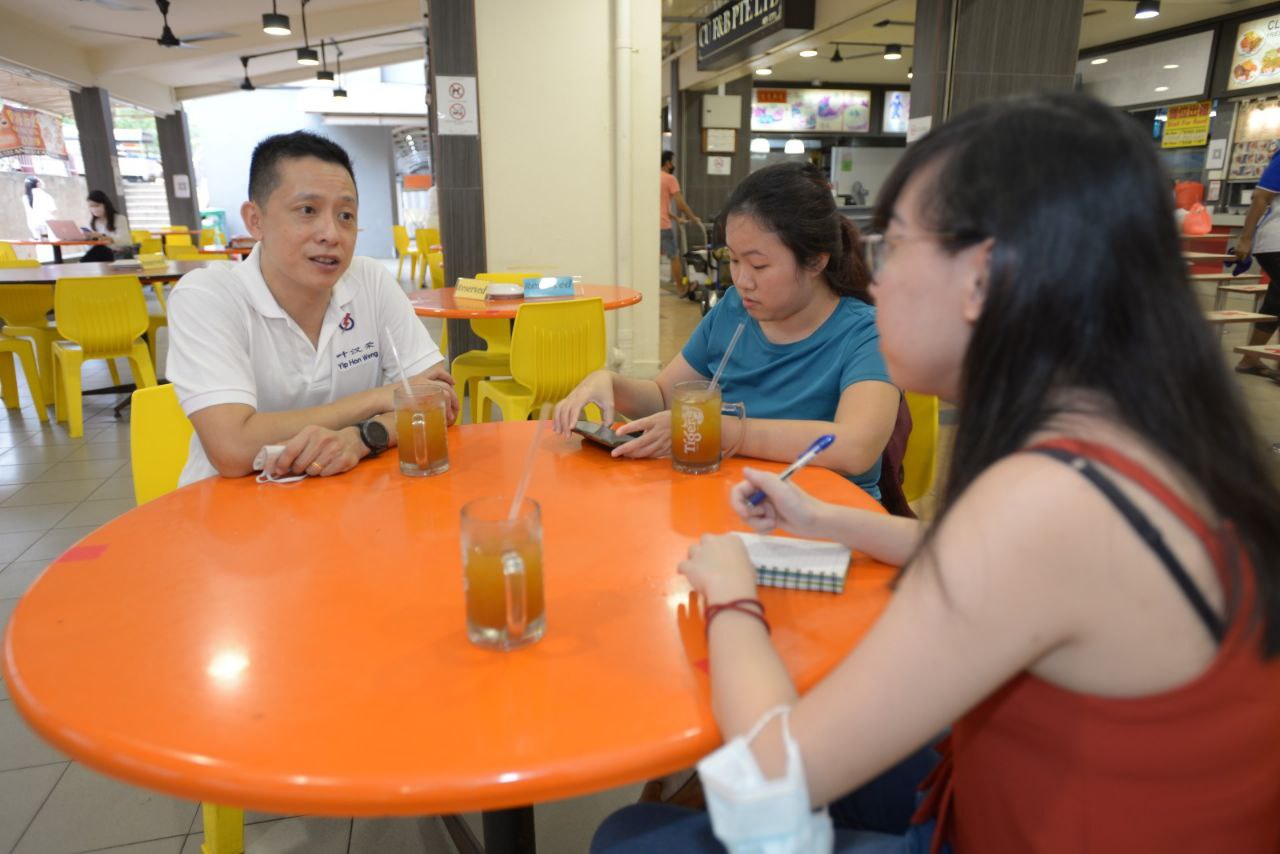
So how were you invited to tea? Did you say "Yes" to it immediately?
"I was asked, I thought very hard about it. I did not reject, neither did I say "Yes" initially. I also talked to my family, my wife, and we had this discussion."
What made you agree to this offer eventually?
"I think the fundamental question is this. Will I be an asset serving Singapore in this position? Can I contribute to the country and its citizens, given my skill sets and my values? And at the end of the day, I thought since I like interacting with people, I like being in the community, and having worked in MSO, knowing all these elderly issues, I have a good grasp of what is happening on the ground. I'm not new to this, so don't geh siao (kid) me ah.
So I thought it would be a good step forward, and after a period of time, I said 'I'm prepared to explore this.'"
What were some of the considerations you had before you made your decision?
"The trade-off will always be on the personal side, because if you're in the public eye, you're a public personality, it's always showtime. You have a lot less time for yourself, a lot less time for family. So it is something I have to balance."
You made what was probably one of your first speeches as a politician on Nomination Day. How would you rate your performance?
"Maybe a six or seven out of 10.
It's not easy to speak in front of everyone. But I thought it was important to tell the residents of Yio Chu Kang that my immediate aim is to hear and understand the needs and concerns of its residents. This isn't grandstanding. The promise I give to them is to be on the ground, to know their perspectives and understand how they feel so that I can do the job better if I'm elected. Really my role is to serve them to make sure their lives are better here."
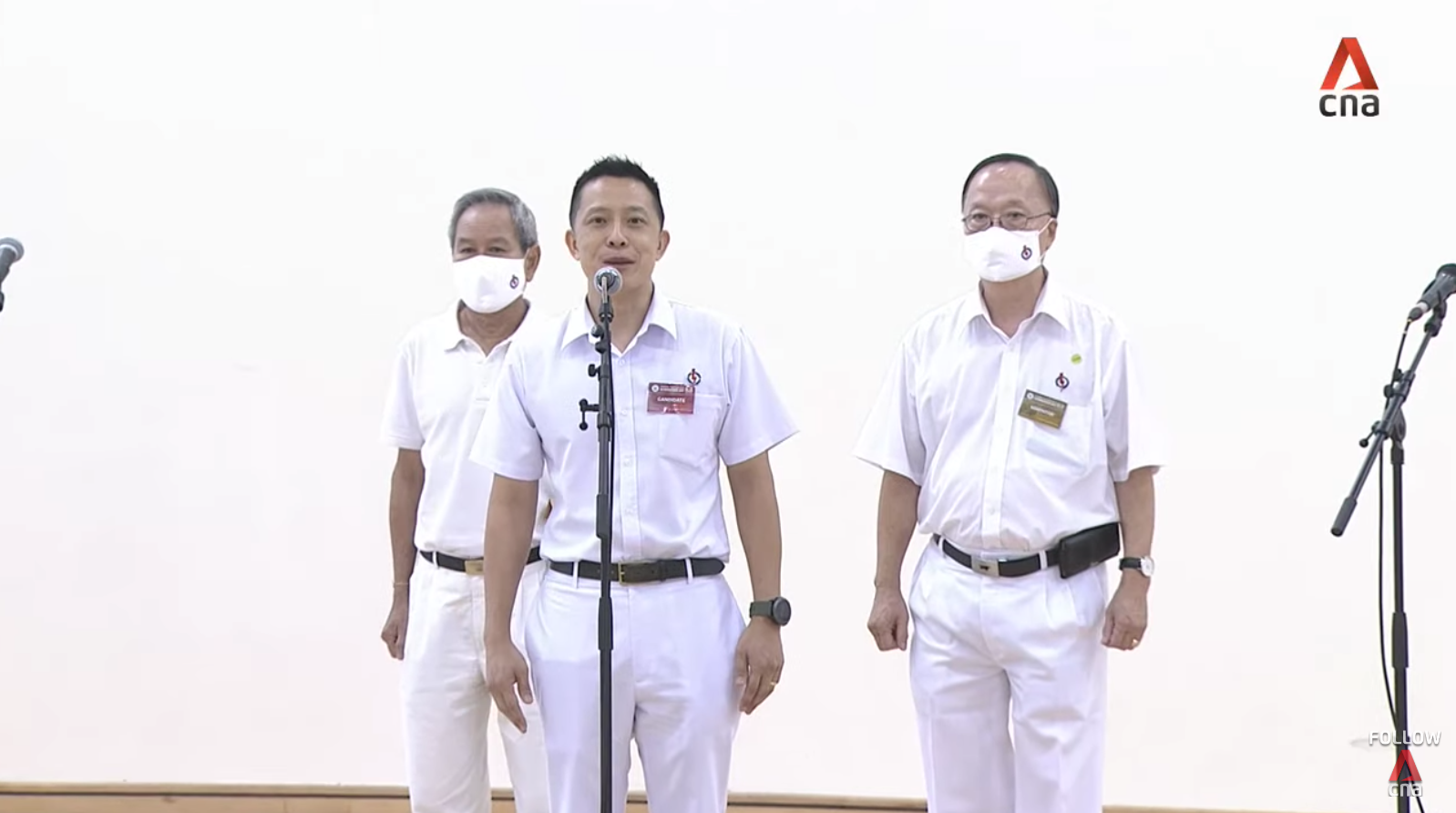 via CNA video screengrab.
via CNA video screengrab.
Were you taken by surprise when you found out you would be running in an SMC?
"So its actually a whole chain you know, because DPM [Heng] moved to East Coast, then Koh Poh Koon went to Tampines, and therefore I come in [to Yio Chu Kang]. So it's part of the whole movement. So I wasn't confirmed until the last moment.
But I wasn't taken by surprise lah, I'm prepared to go anywhere they send me. So if the party decides to send me to an SMC, I'll go there and try my best."
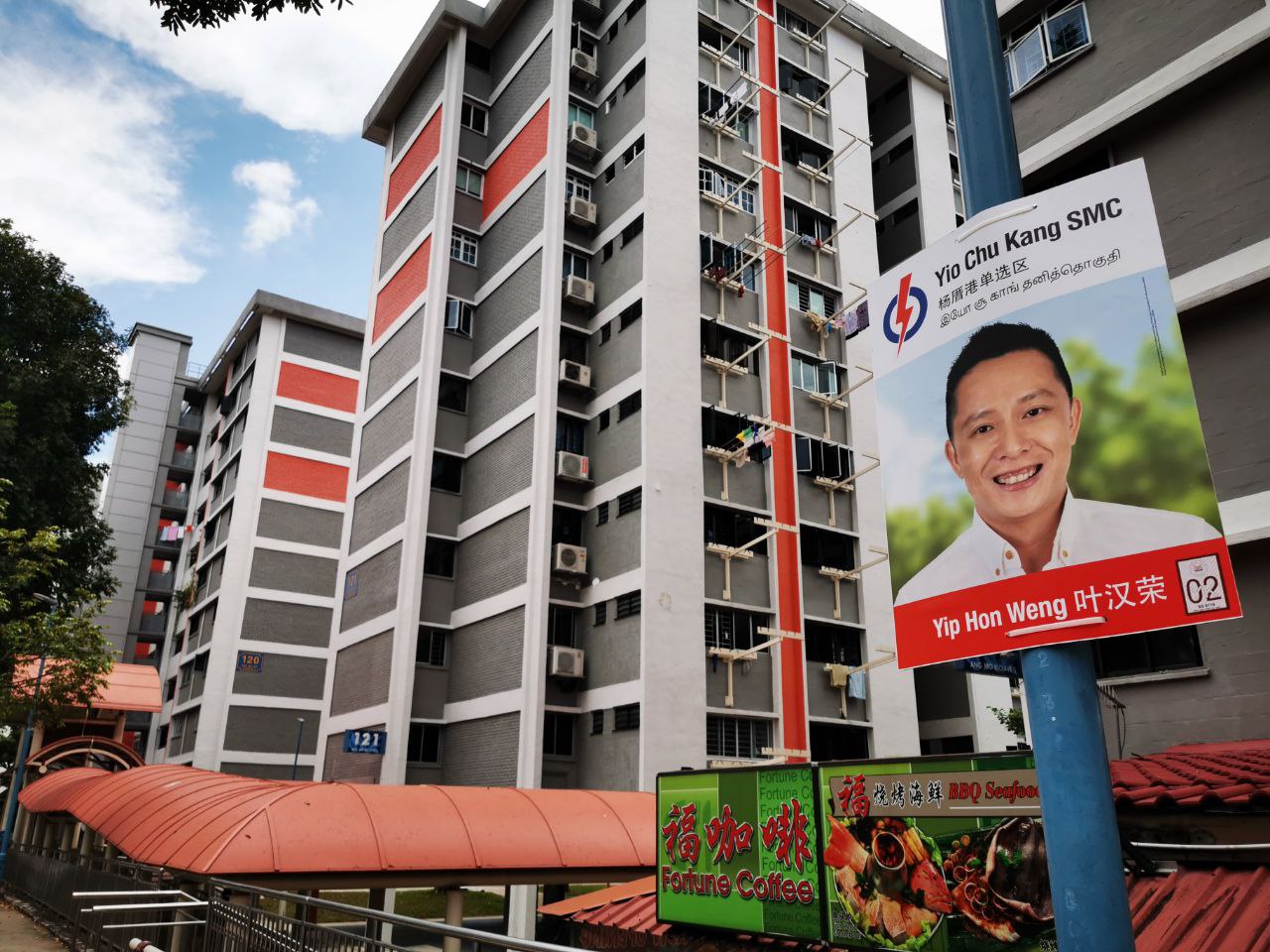 Photo by Zhangxin Zheng
Photo by Zhangxin Zheng
How will the experience differ if you were fielded to a GRC instead of an SMC?
"If I'm in a GRC I think a lot of it would involve teamwork. How do you make sure that whatever you do is in line with what the GRC wants, whereas in an SMC, I think I would have more free play in terms of what I want to do."
7. What do you think of your opponent?
"I'm very happy that there is someone standing, I'm in for a tough fight, it's never easy. I hope that both sides can do their best for this election."
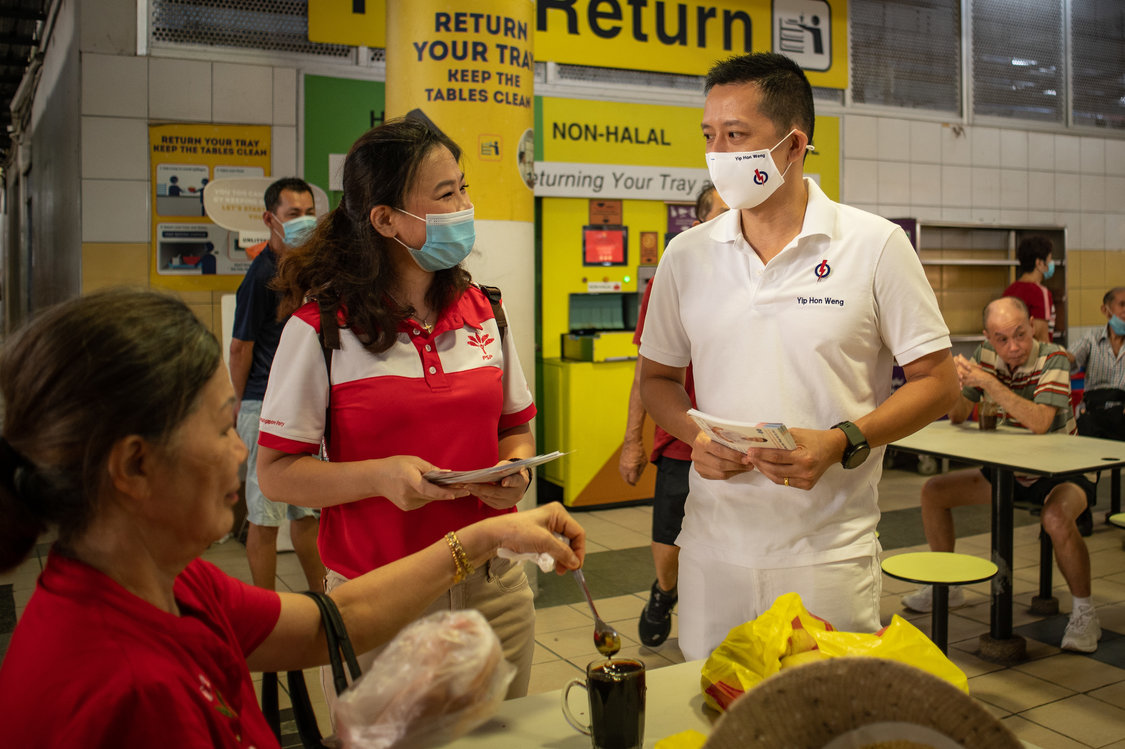 Photo © Lim Wei Xiang for Mothership.
Photo © Lim Wei Xiang for Mothership.
You've had several mentors so far -- Lee Bee Wah, Koh Poh Koon, Khaw Boon Wan. How would you compare them?
"So for Lee Bee Wah, I admit, my Chinese is not very good. So I learnt simple ways of interacting with people, how to approach them, to call them "Da jie, da ge" instead of "auntie, uncle".
For Khaw Boon Wan, he's one of the ministers I respect a lot. He's very humble, not afraid to try, very resilient, and ready to get his hands dirty and fix things. So I really respect that he's looking after portfolios that are very difficult to settle. He has fixed healthcare, SARS. Fixed housing, fixed transport. These three things are very important to Singaporeans, especially transport.
Your interaction with the service is two times a day, so if the service is not to standard, you complain twice a day, as compared to purchasing houses, that's once every 10 years. So the frequency of interaction with government is actually very high for certain sectors of public services.
For Koh Poh Koon, he knows the ground very well, and he's very decisive. So if I'm elected, it's important that I understand the local terrain. And when I go around visiting residents, they tell me they miss Dr Koh. So I have big shoes to fill."
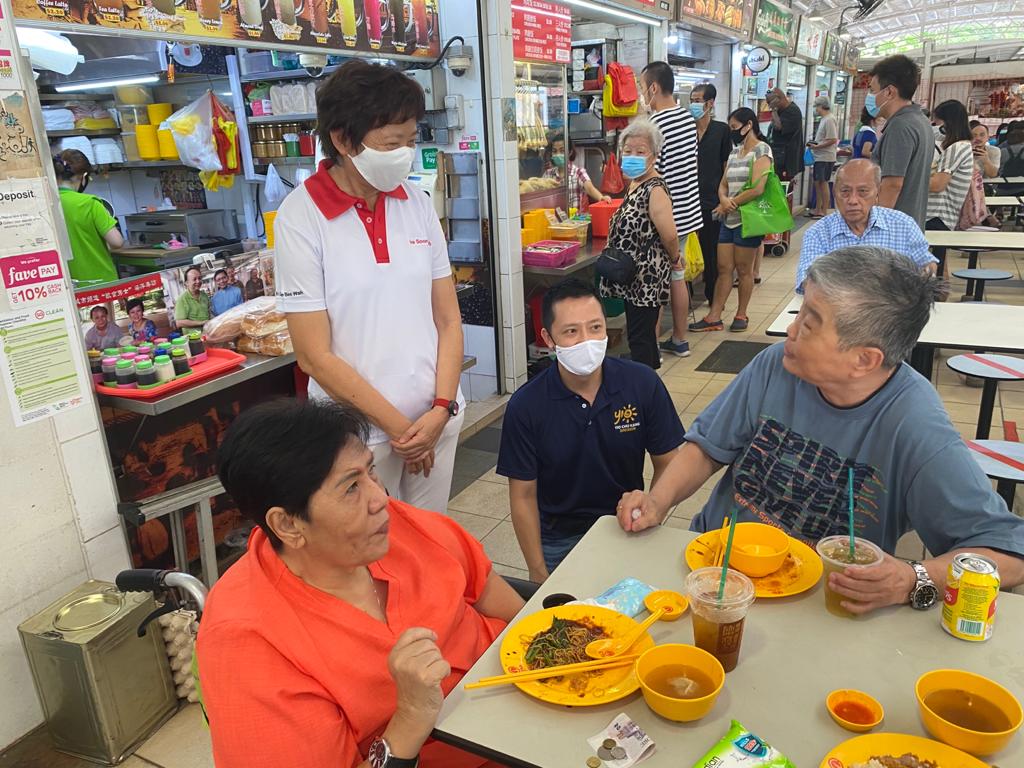 Photo from Yip Hon Weng / FB
Photo from Yip Hon Weng / FB
What's one of your biggest challenges on the ground?
"I think we need to do a lot more in terms of last mile delivery. Going on the ground to make sure residents understand and know things. When you're an MP, you have to make sure you reach every single resident. For example, some people are living in a state where a lot more help can be given, but they don't know this help is available.
Coordination is also key. We don't lack services, but how do we coordinate better between public services to the private sector. We need to wrap services around the resident rather than ask the resident to go to different places to get the services they need."
You seem quite passionate about aging issues and helping the elderly. Was there a specific incident that sparked this?
"So there are several incidents. One example was when I went to conduct house visits, and this house we came across was quite interesting. The lock was not at eye level. It was here." *Gestures to his waist*
After we knocked, we heard some shuffling. There was this fellow on a platform with wheels, with no legs. He opened the door. There are people living like that.
There was another case where the fella fell on the floor in the kitchen area, for two days he couldn't move. Then the door was slightly open, we (the volunteers and I) managed to go in and call for help."
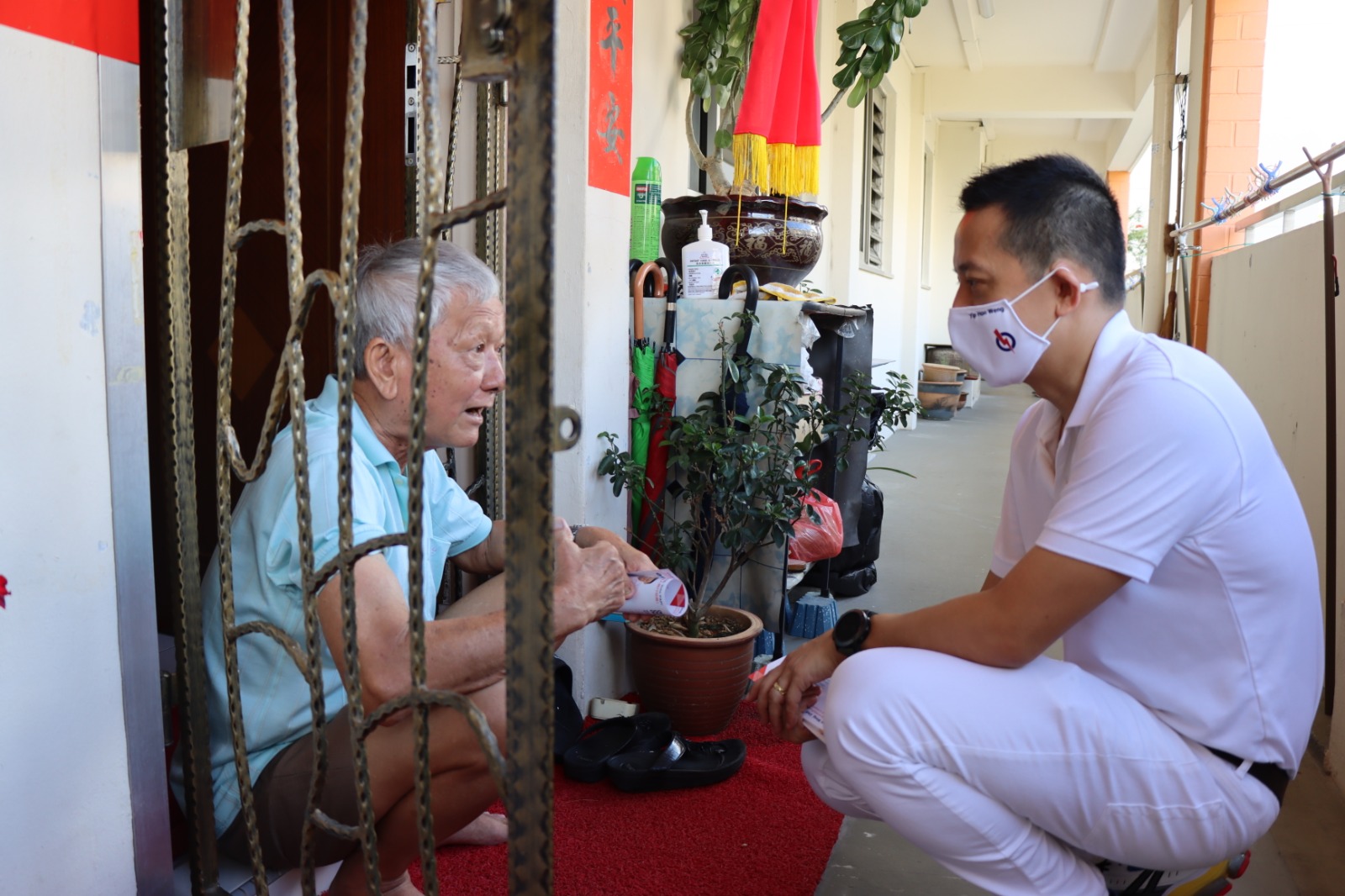 Photo from Yip Hon Weng / FB
Photo from Yip Hon Weng / FB
"If you notice, HDB blocks are very uniform, every single unit looks the same. Sometimes you open the door to a happy story — the children visit their parents every week for example.
But you open another door you'll find a very sad story — the children have abandoned that person, they have no food. So this is our job, to care for them and ensure they have the services they need. And that is what I think drives me."
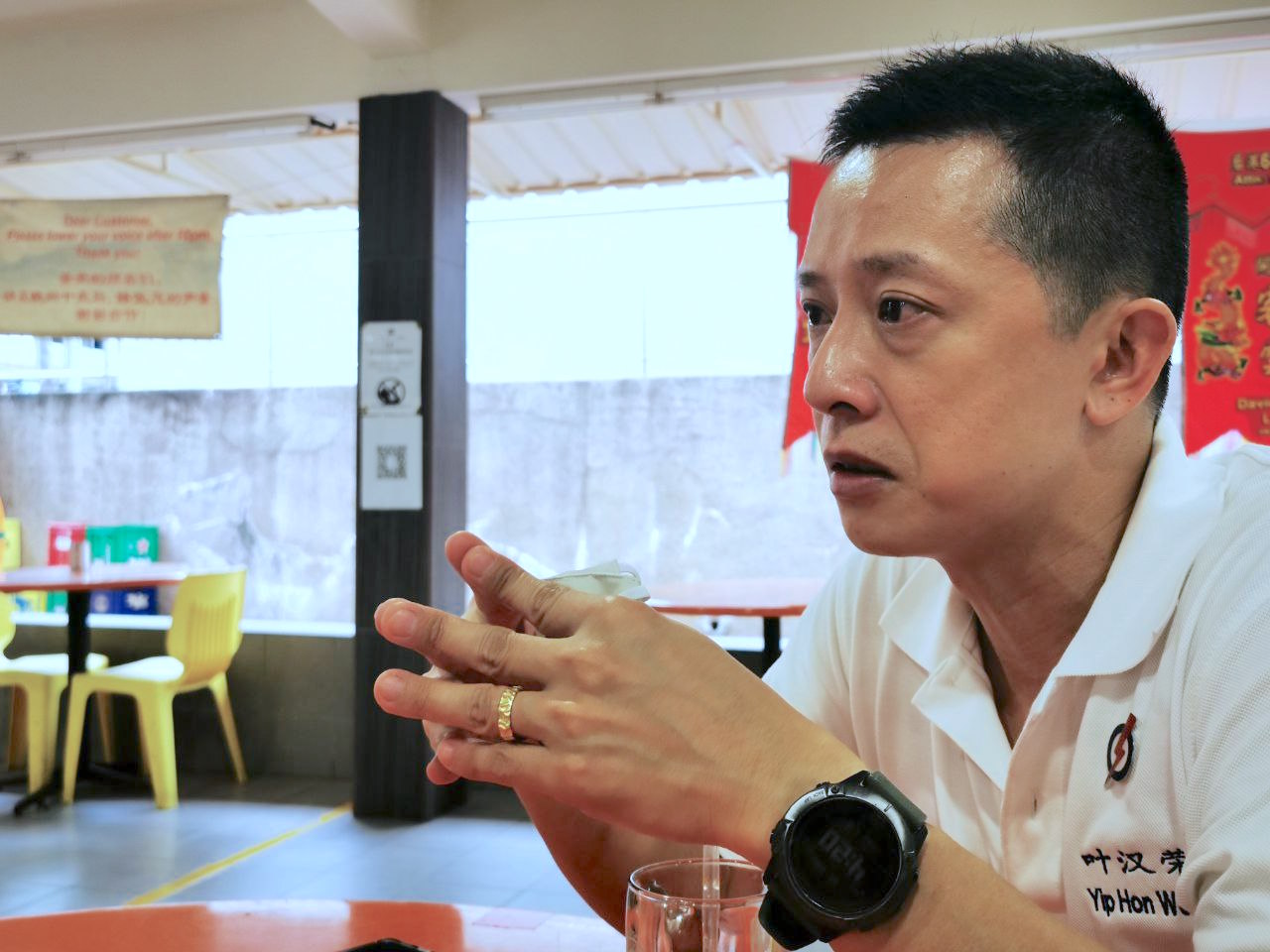 Photo by Zhangxin Zheng
Photo by Zhangxin Zheng
Do you find it very hard to maintain this online persona now that the public places so much scrutiny on candidates?
"I am known to be very frank in my views, and I can be quite forthcoming. I don't like to put up false pretenses. That's how I am, that's the real me. I don't think I will be someone who will sugarcoat things."
How do you prepare to take criticism from the public for who you are?
"I guess the main thing is I have to be true to myself and not put up a persona that is different from who I really am. Of course if I'm elected, there is a certain level of decorum I have to maintain, so I have to be mindful of that.
I'll be very frank, sometimes people find me a bit rough. I may not be the most eloquent person, or the most polite. I'm not proud of it. I guess as a public personality you have to choose your words wisely, but that doesn't mean you can't be sincere or upfront, or speak your mind on things."
Personal life
Besides sharing his experience as a political newcomer, Yip also shed some light on his personal life as a husband and a dad. Here are some interesting bits about him, starting with —
No television at home
This might seem a little bizarre for some but Yip does not have a television set at home.
Like many people today, Yip and family do not rely on the television for information.
Going without a television set also serves to minimise the screen time for Yip's five children — not an easy task, as many parents can attest to.
Yip's five kids, ranging from ages two to 10, have tactile toys, board games, and books at home to keep them occupied.
When the children have to use electronic devices for home-based learning or shows, they will have to ask for permission to use his laptop and hence, have to learn how to take turns."They do watch shows on YouTube, on Netflix or whatever, but obviously I'm not going to turn on five Netflix at home lah. Yeah. So they have to nego lor. Today, okay I want to watch... so among themselves they have to come to some consensus like, 'eh gor gor wants to watch this', 'okay my turn today'.
Of course, there are disputes, and a lot of times there are fights lah. So they have to nego and sort it out themselves lor, which I think it’s good.
It’s a matter of how much you can delay it... I want to delay it as much as possible so that they don’t get addicted so that they can enjoy other things in life which are more important than electronics and screen time... the simple things in life like how to work with your hands, how to deal with people, how to negotiate, how to build alliances. These are things that you learn lah, life skills ah, life skills."
So, without a TV, how do you relax?
"I run everyday... My photographer is my running buddy as well."
What is something new that you have been learning recently?
Interestingly, Yip recently started learning how to do stand-up comedy and improvisation.
However, he was quick to clarify that he does not want to be a comedian. Instead, he is learning improv to be a better communicator.
"Recently I've been, in my very little discretionary time, watching how people do stand up comedy [and] improvisation. You know, how to make people laugh, or how to make people react in a certain way.
So that’s something I'm trying to [learn], not that I'm gonna be a comedian, like how do people, for instance in an improv show, managed to keep people entertained and engaged for over an hour, and you know just weave different narratives together and come up with a story that intrigues people and make them understand and hook them to something [so] they want to watch."
He listed Kumar and Dave Chappelle as good stand-up comedians.
His very special gold wedding band
Towards the end of our chat, we couldn't help but ask about the gold wedding band on his finger.
Its unique design isn't very common today.
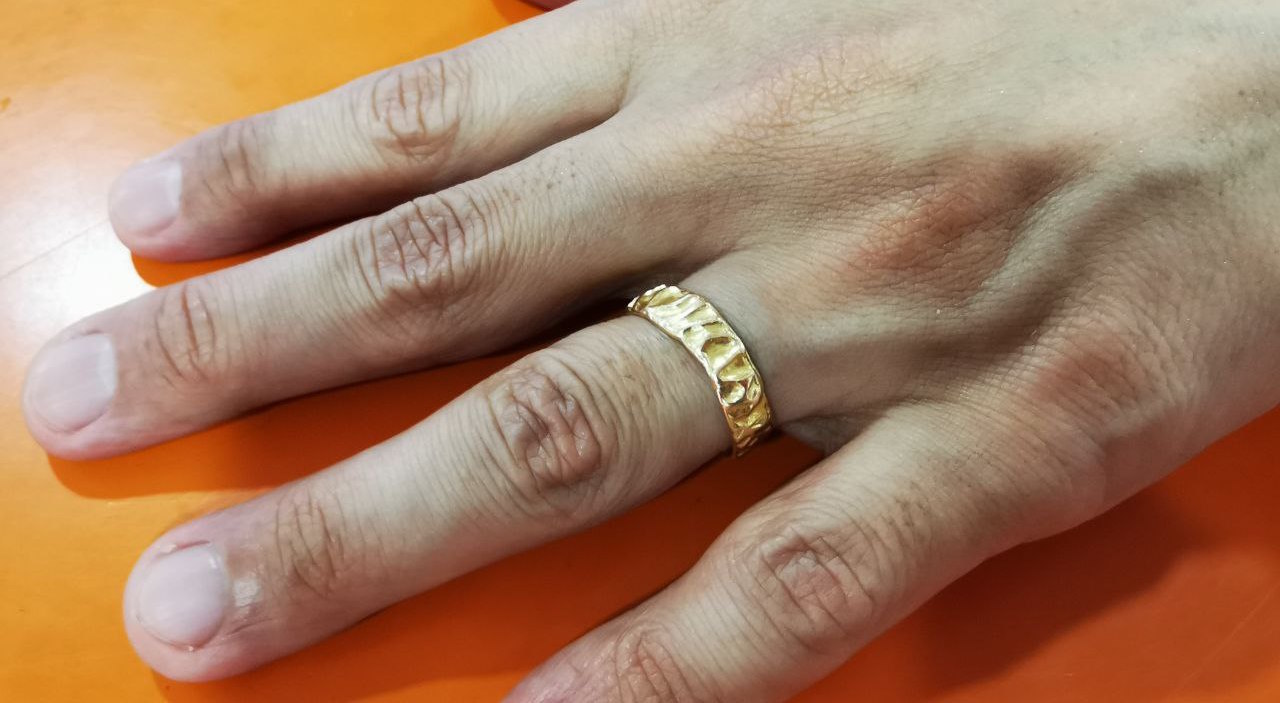 Photo by Zheng Zhangxin.
Photo by Zheng Zhangxin.
This ring is particularly meaningful because he and his wife were involved in its design, said Yip.
"I'm not very happy with [it] but life is like this, life is very imperfect. This is not a very straight ring you can see. This is a self-design [and] I designed it with my wife. So me and my wife have the same ring, she has diamond lah, mine don’t have."
So does the design mean anything, we asked.
"Life is rough lah, marriage is tough," Yip quipped cheekily.
We all burst into laughter before he quickly added that he was just kidding.
Top photo via PAP and Yip Hon Weng / FB
If you like what you read, follow us on Facebook, Instagram, Twitter and Telegram to get the latest updates.
